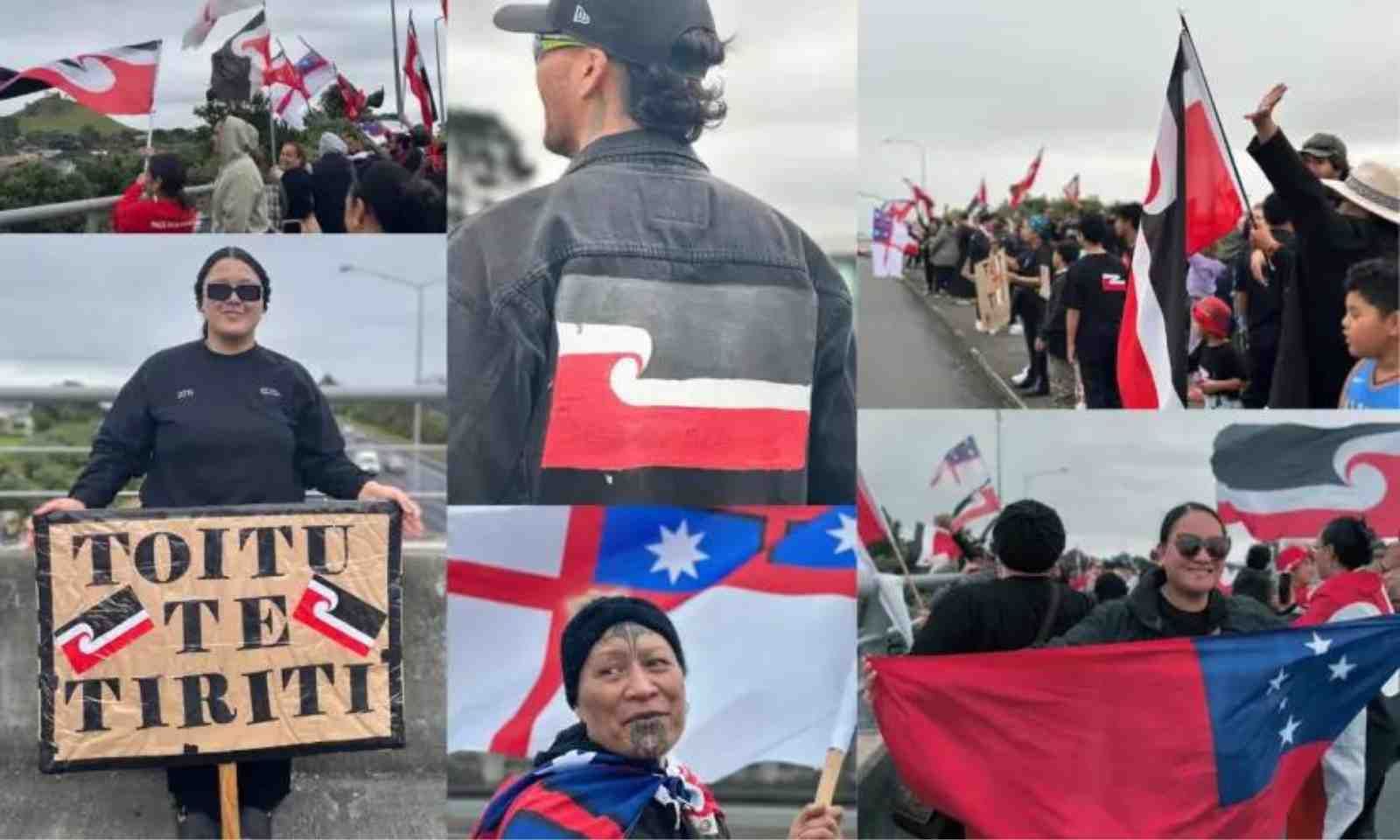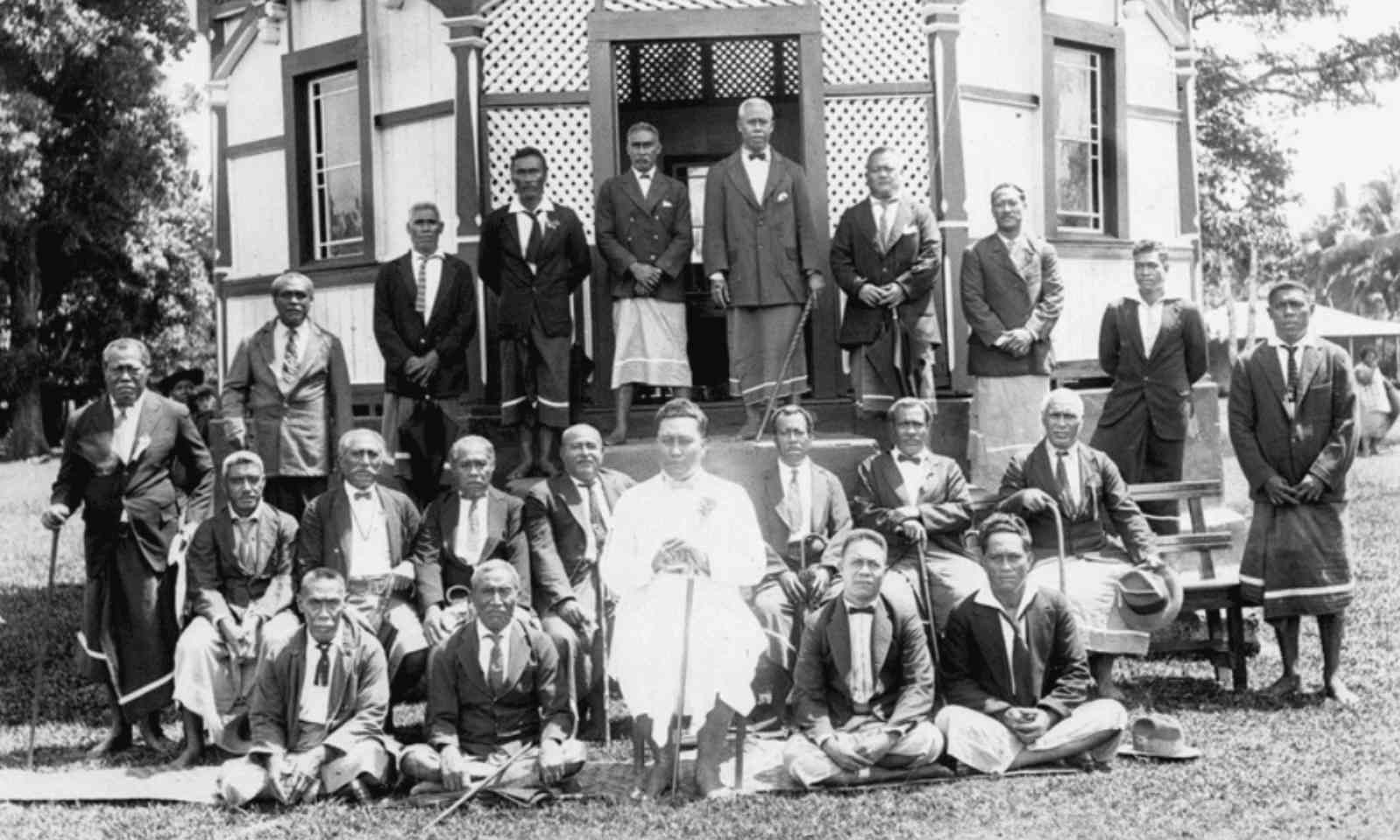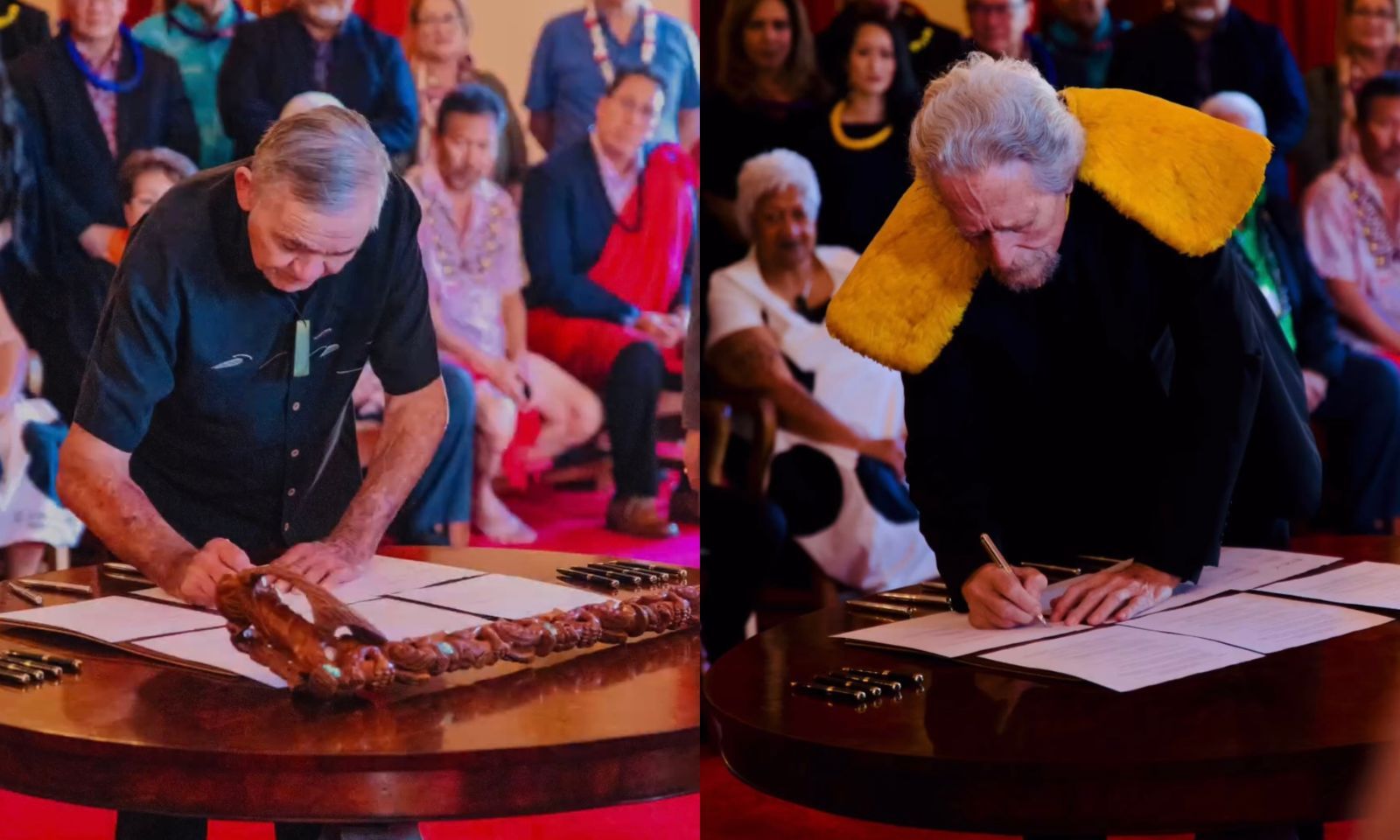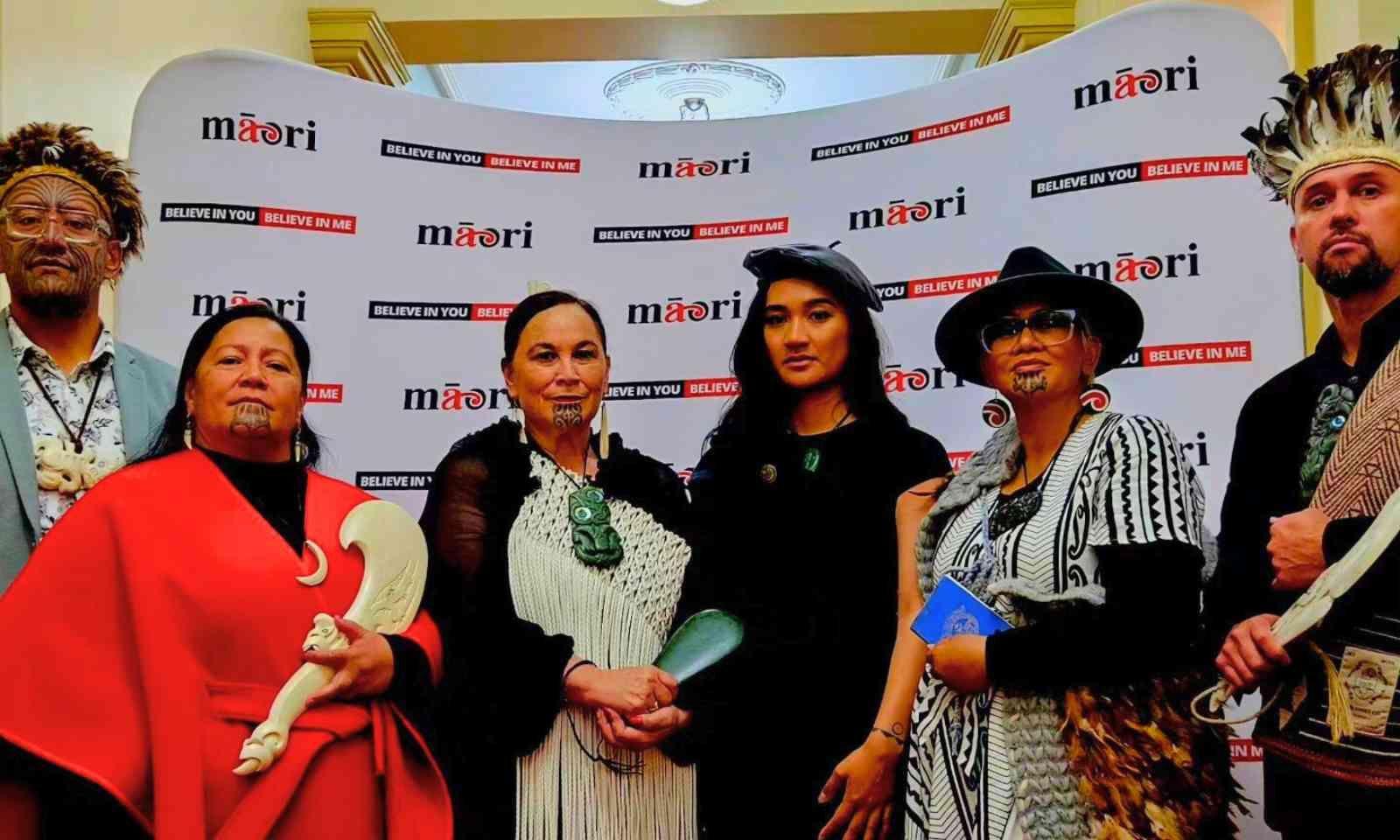

Te Pāti Māori says the government will no longer "determine our oranga (livelihood) of our people, our mokopuna, the land and te iwi Māori katoa".
Photo/supplied
Why Māori want their own parliament
Te Pāti Māori says it can no longer allow any government to dictate tino rangatiratanga (sovereignty) of tangata whenua.


The aftermath of the Citizenship Act [Western Sāmoa] 1982: Sāmoa’s third Mau


Opetaia retains cruiserweight titles with stunning win


The aftermath of the Citizenship Act [Western Sāmoa] 1982: Sāmoa’s third Mau


Opetaia retains cruiserweight titles with stunning win
History could repeat itself if Te Pāti Māori succeeds in establishing its parliament.
In a similar move to Samoa’s Mau Movement in 1908, the Māori Party is focused on transforming Aotearoa into a nation that respects the tino rangatiratanga (sovereignty) of tangata whenua.
Mau was established by the Samoan chiefs to create their government and oppose New Zealand's colonial rule at the time. The campaign helped Samoa gain independence in 1962.
Te Pāti Māori co-leader Debbie Ngarewa-Packer (Ngāti Ruanui, Ngāruahine, and Ngā Rauru) says the new parliament will also create a safe home for all people.
Speaking from Hawai’i while attending the Festival of Pacific Arts, she said the party was holding talks "to form a government for the right to execute authority for Māori".
She said neither the blue nor red governments “consistently respected Māori issues and that also disrespects Pacific people.
“I guess we’re really lucky for us as Pasifika because Ngā Tini Whetū, the stars, connect us all, so this is about reconnecting ourselves back to how we should be,” Ngarewa-Packer told Pacific Mornings’ William Terite.
By reconnection, Ngarewa-Packer referred to how Māori had their parliament in the 1800s which was forced to end in 1902 by the colonialists.
Te Pāti Māori issued a Declaration of Political Independence, Te Ngākau o Te Iwi Māori, last month imploring all Māori and non-Māori to sign it.
The move also began the process of establishing the Māori parliament as thousands of people joined a hīkoi for National Māori Action Day, spearheaded by the political party.
The protest also coincided with the Budget announcements by Finance Minister Nicola Willis.

Tagata moana and tangata whenua join forces at the Toitū Te Tiriti protest in April. Photo: PMN News/Atutahi Potaka-Dewes
“Enough is enough,” a statement from Te Pāti Māori read.
Ngarewa-Packer said Te Pāti Māori was proud to be an activist party, not a political one, hence the push for a new parliament.
“It’s really important as the only activist party that we reclaim and make sure our generations know that the rangatiratanga is something within our reach, what it needs to look like, how we claim that is something we need to make sure it’s something our next generation is talking about.
“At no stage do I think it’s going to be something that starts and finishes in my lifetime, many have dropped this kōrero about independence, about us looking after ourselves and again reminding Māori that we never ceded sovereignty.”
Te Pāti Maori MP Hana-Rawhiti Maipi-Clarke (Ngā Puhi, Waikato, Taranaki, Ngāti Porou, and Ngāi Tahu) said the new campaign was about abiding by the Te Tiriti o Waitangi (The Treaty of Waitangi).

The Mau Movement was established in 1908 in Samoa. Photo/Mau Movement
“You look at the treaty and the key messages because it’s a simple treaty, you can come over here with your people. We allow you, we welcome you, you govern over your people and we’ll govern over our people.”
Not everyone agrees with Te Pāti Māori. The coalition government has opposed the idea, and the Kīngitanga has questions.
But Maipi-Clarke said in the past, many Māori were against making te reo Māori an official language, introducing kura kaupapa (Māori language school), or forming their political party.
But she said judging from the turnout at the national hīkoi including the November and Te Hui ā Motu ki Turangawaewae, there was growing support from the public.
“We’re lucky that every activation has been peaceful, mokopuna-driven and it’s been about uniting people under a real positive umbrella because people are so frustrated and they don’t know how to express that emotion.
“So we’ve really made sure to be like ‘no whāanau’. Let's find the light, let’s find the light.
“When that treaty principal bill comes in, when you look at our whānau over in Kanaky, with the New Caledonian government with the French, how absolutely insane has that unfolded.”
The National Party said Te Pāti Māori’s move was “just a publicity stunt”.
ACT leader David Seymour said he hoped to see the backs of Te Pāti Māori from Parliament so “they can stop distracting people from the real issues affecting New Zealand”.
Labour’s Carmel Sepuloni said the party did not “support this specific action”, but backed the nationwide protests.

Māori King Tuuheitia Pootatau Te Wherowhero (left) and Royal Prince of Hawai’i David Kawānanakoa sign the Tuurama Ariki Declaration in Honolulu. Photo: Aukaha/Kiingitanga
While in Hawai’i, Ngarewa-Packer said she has been connecting with Ariki (leaders) from across the Moana (ocean) to hear their perspectives on the issue.
Led by Royal Ariki of Hawai’i His Grace Prince David Kawānanakoa and Māori King Tuuheitia Pootatau Te Wherowhero VII, the paramount chiefs and traditional leaders pledged to bolster regional unity.
They signed the Tuurama Ariki Declaration as their promise to use ancient indigenous expertise to guide generations forward for the protection and preservation of connection to culture, spirituality, land, and sea.
Ngarewa-Packer said she also hoped to create models for Māori to use on their whenua (land) and bring these ideas to the discussion table with iwi in Aotearoa.

“Colonisation was a slight in our whole economy, it wasn’t who we were before and it doesn’t have to be who we remain to be, at the bottom of every main statistic.
“It requires an intervention that is extreme, but it’s also connected to whakapapa and no one can take that away from us.”
Te Pāti Māori said the new parliament would assert Māori sovereignty as affirmed and protected in He Whakaputanga and Te Tiriti o Waitangi.
It would also be anchored in tikanga (Māori customs) and kawa (marae protocol) and target the livelihood of mokopuna (descendants).

